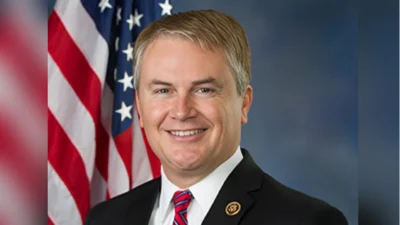Mr. Chairman:
I believe that today’s hearing is about serving the greater good.
In recent years, hospitals have been asked to do more with less. We have slowed the rate of growth of their payments, and asked them to work harder to improve quality and decrease unnecessary readmissions.
Furthermore, although Congress just delayed yet again the transition to the ICD-10 classification system, hospitals have had to take steps to move to the new system, while continuing to implement the “meaningful use" requirements, and participate in delivery system reform efforts.
Many of these activities support the noble goal of improving care for the patients that they serve - such as accountable care organizations and the patient-centered medical home - while reducing long-term costs, but they require up-front capital investments.
Hospitals are employing people and providing good and stable benefits for their employees - something other sectors should emulate.
Hospitals are doing all of this in the face of a number of regulations and justifiable scrutiny.
The Administration recognizes the sacrifice that this sector has put forward. As an example, the Administration has made efforts to reduce unnecessary regulatory burden. Just this month, the Administration released Part II of a final rule to reduce “unnecessary, obsolete, or excessively burdensome regulation on health care providers and suppliers."
I commend CMS for walking a fine line between regulating provider conduct and attempting to make things easier from a burden standpoint. This is the agency’s second foray into ensuring that regulations make sense and that they serve a purpose.
Unlike my Republican counterparts, I believe some level of regulation is necessary to ensure that we protect Medicare’s finite resources for future generations.
I think everyone in this room would agree that protecting Medicare as a bedrock institution of American life - thereby serving the greater good - does require some sacrifice.
This necessary sacrifice must be shared and proportional. To that end, I was among the first to call for reforms to the Medicare recovery audit contractor program.
Back in July 2013, I submitted a formal comment to CMS during the proposed rule stage, highlighting that the proposed two midnight rule was not going to solve the problems it was intended to solve.
As a result, I suggested CMS reconsider its policy in this regard. Now, of course, several stakeholders have raised concerns that the recovery audit contractors will be overzealous in pursuing recoveries related to this policy.
It is not that I believe the RACs should disappear; they perform a critical role in protecting taxpayer dollars. I do believe that the program needs reform from a fairness and equity standpoint and I am pleased that CMS has taken some affirmative steps in this regard.
I have also been among the loudest voices calling for reform of some of the fraud and abuse laws to allow broader participation among providers and suppliers to participate in innovative partnerships that promote care coordination, such as gainsharing and other shared savings programs, while ensuring programmatic protections under the fraud and abuse laws remain in place.
I have also introduced HR 4658, which would make a modification to the Civil Monetary Penalty Law to allow providers to more easily participate in care coordination programs.
I also have introduced H.R. 3144, the Fairness for Beneficiaries Act, which recognizes that the 3-day stay often has negative ramifications for Medicare beneficiaries and would eliminate this requirement.
Finally, as the author of the Self-Referral Disclosure Protocol provision included in the Affordable Care Act, I have been deeply involved with urging CMS to make certain changes to ensure overpayment disclosures made pursuant to the protocol can be settled in a timely, efficient manner.
All in all, hospitals are making shared sacrifices. They are going through a period of unprecedented change; they have demonstrated a willingness to work with us as we move to new delivery system models and they have taken some financial hits.
I appreciate the work that hospitals do but also recognize that given the improper payment rate on the Medicare fee for service program and the Medicaid program, they must be subject to some scrutiny by various contractors, including the recovery audit contractors.
I think we all would like to ensure that going forward, we alleviate regulatory burden where appropriate and ensure that Medicare dollars are being used in a way that will sustain the Medicare program for future generations. Hospitals have demonstrated a willingness to work with us in the pursuit of these goals.








